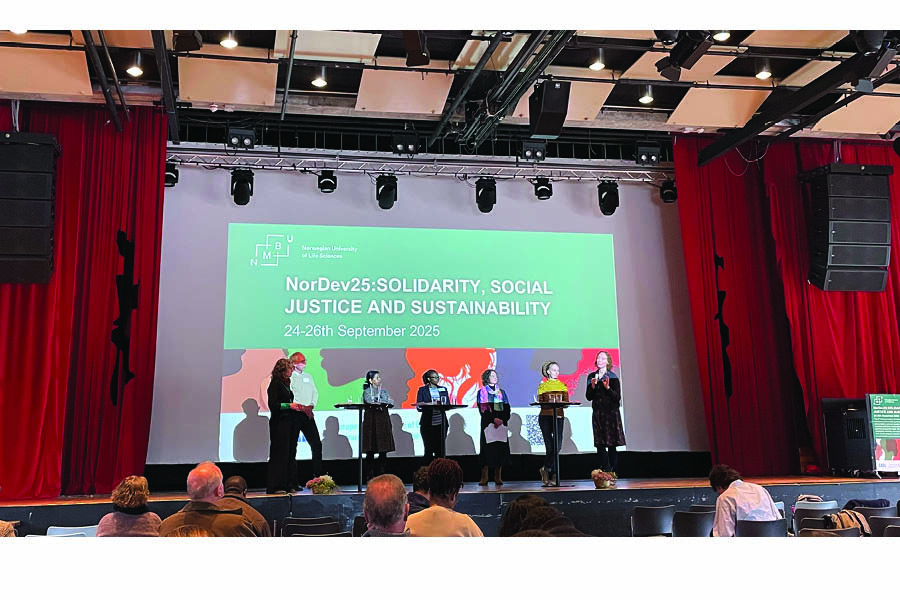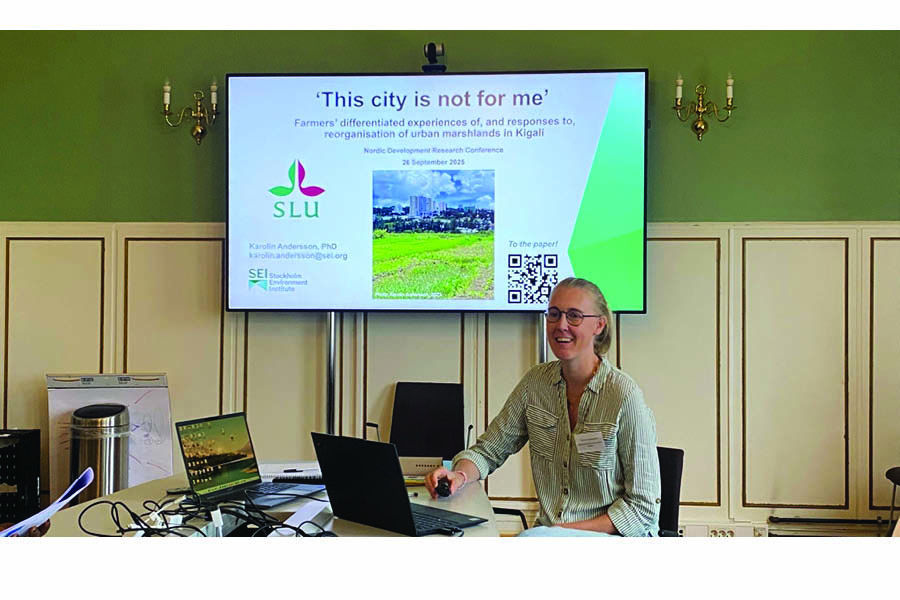At this year’s Nordic Development Research Conference (NorDev) in Ås, Norway, researchers, students, policy makers and civil society actors gathered to discuss how to strengthen solidarity and social justice across borders. It was inspiring to be part of the discussions on how we can secure progress towards social, economic and environmental sustainability and equality for all. I also had the chance to present my latest research on gendered effects of urban greening in Rwanda and engage in meaningful conversations.
Strengthening solidarity and social justice in development

View of the central stage, Photo from Karolin Andersson.

Karolin Andersson presenting her present research on gendered effects of urban greening in Rwanda. Photo from Maria Ölund.
Inclusive and just transitions to sustainability served as the foundation for the conference conversations, which sought to debate how to strengthen Nordic cooperation and rethink the roles, responsibilities and potential for Nordic development research environments. What stood out to me was the diversity of the discussions, from keynote speakers, plenary sessions and 27 panel sessions covering decolonial development practice, hopeful and careful futures of development research, South-South cooperation, challenges and opportunities in current Nordic development cooperation and the implications of this for development in collaborating countries. In the parallel sessions, energy transitions, food and agriculture systems, water governance, forestry, conflict and migration, land rights, and social inequality were all on the agenda, offering new perspectives on how deeply sustainability is tied to justice and equity.
Against the backdrop of contemporary conservative backlash, there are trends in the global North of withdrawal and reformulation of the role and contribution of development research and cooperation. Many of us felt the need to rethink practices and relations: how we do research and who it is really for. A discussion throughout the conference called for solidarity, not only symbolically but in real practical ways that involve sharing risks and burdens and relocating power and knowledge authority.
While serious challenges remain for development research and practice, from political pushback to structural inequalities, the NorDev Conference facilitated new connections, and reflection. It sparked new ideas, strengthened networks and revived motivations to persist and resist in solidarity towards a more just, sustainable and equitable future for people and the planet.
Leaving Ås, I took with me not only new insights and questions, but also a strong sense of community and purpose. The conversations at NorDev reminded me that even if the future is uncertain, we are not walking it alone. In these times, spaces that foster critical dialogue, collective learning, and genuine solidarity are more necessary than ever; not just for the future of development research, but for the kind of world we want to build together.
Authors
Topic:
Tags:
Related content
17 June 2024
22 August 2023
6 May 2022